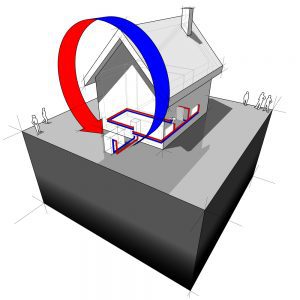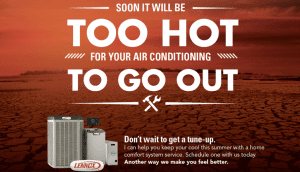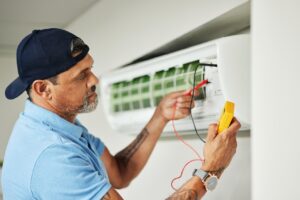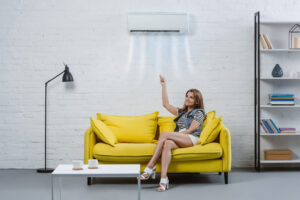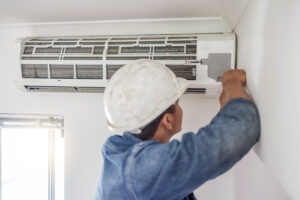What Is Indoor Air Quality?
Air pollution surrounds us daily, in car exhaust, smog, and indoor air. Wait – indoor air? Yes, in fact. In today’s homes, the indoor air can be up to 70% more polluted than the outside air. Since polluted air can harm our health and the American Lung Association estimates that most people spend 90% of their time indoors, it is important to consider the cleanliness of your home’s air. What is indoor air quality, and how can you improve it?
- What Causes Indoor Air Pollution?: Many everyday, unsuspected household items contribute to poor indoor air quality. Chemical compounds found in common building and decorating items such as glue, plywood, and carpet constantly “off-gas,” or emit fumes. The components used to make household items can reach harmful levels if indoor air quality is not properly maintained. In addition, newer, more energy-efficient homes do not “breathe” like older homes. Items like weather-stripping and storm doors keep indoor air in, and outdoor air out. This provides energy savings, but the limited exchange of outdoor and indoor air can cause contaminants to build up inside your home.
- Health Benefits of Clean Air: Clean indoor air can help relieve the symptoms of two common health problems: allergies and asthma. But even healthy people who have never suffered from allergies can benefit from clean air. Dust, smoke, and other particles float around in the air; this is why drapes and furniture gather dust, and wallpaper begins to look dingy. Removing airborne dust particles reduces the amount of exposure your respiratory system is subjected to, allowing it to remain in a more healthy, strong condition.
- How Can I Improve Indoor Air Quality?: One way to clean indoor air and keep the indoor air quality at a high level is with an air cleaner. An air cleaner can remove dust, smoke, and other particles that settle in your house and age your furnishings. If you remove these pollutants, you will also remove a major cause of dirt in your home. Even though all comfort systems have an air filter, this only protects your equipment from dust and large particles. It is not designed to clean indoor air. Air cleaners are designed to take harmful particles out of the air and improve indoor air quality. They come in a variety of types and styles. Media filters remove many airborne pollutants, including dust and pollen. They are effective in removing these larger particles, but they must be replaced periodically. Healthy climate air purifiers, on the other hand, remove smaller and many more airborne particles than media filters. Healthy climate air purifiers can even remove mold spores and most smoke.
- Evaluating Air Cleaners: Due to the wide range of air cleaners available today, selecting an air cleaner can be confusing and difficult. Many claims are misleading or just advertising hype. The only official measure of an air cleaner’s efficiency is the Dust Stop Test Rating. This measure is endorsed by the American Society of Heating, Refrigerating, and Air Conditioning Engineers (ASHRAE). Other tests and efficiencies simply do not provide an “apples to apples” comparison. Look for a Dust Spot Test Rating of 25% or higher when considering an air filter. The Department of Health, Education, and Welfare recommends this as the minimum level required for an air cleaner to be truly effective.
- Other Ways to Improve Indoor Air Quality: Considering ways to clean indoor air becomes increasingly important as homes are made more and more airtight. Contaminants can collect on your heating and cooling equipment and continue to recirculate throughout the house every time the equipment runs. Cleaning your comfort equipment at the beginning of both the heating and cooling seasons can significantly help indoor air quality. Your serviceman can clean all comfort equipment when he or she comes for a routine service call.
- Meaningless Terminology?: Ignore the following terms when considering an air cleaner, unless it is Dust Spot Test Rated. These non-technical, general product descriptions are meaningless without an official Dust Spot Test Rating.
- Removes smoke, dust, and pollen
- Eliminate up to 100% of irritants in your indoor air
- Removes particles as small as one micron
- Effective on cigarette smoke and mold spores
- Up to 99% effective
- Recommended by allergists
Be sure to read all available information and weigh all the factors before purchasing an air cleaner.
Consider an air cleaner when you purchase your new comfort system, or ask your Long Heating and Cooling service technician about adding it on to your current system. Either way, the benefits you’ll feel and see are worth it!




